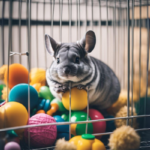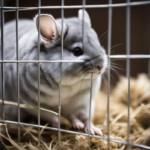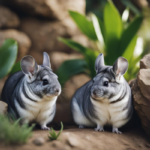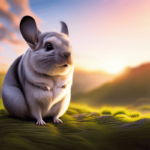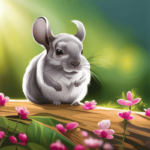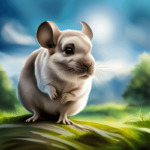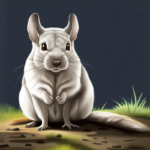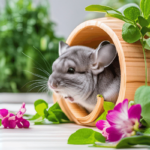Baby chinchillas, often affectionately referred to as “baby chin,” have captured the hearts of animal enthusiasts worldwide. These tiny, fluffy creatures are known for their cuteness, soft fur, and unique characteristics.
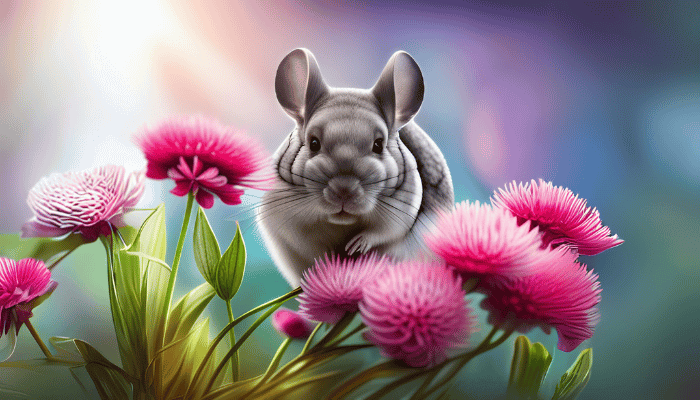
In this comprehensive guide, we will dive deep into the enchanting world of baby chinchillas. From their origins to their care requirements and interesting facts, you’ll discover all you need to know about these charming rodents.
What is a Baby Chinchilla?
Baby chinchillas are the adorable offspring of the chinchilla, a small rodent native to the Andes Mountains in South America. These tiny creatures belong to the family Chinchillidae and are known for their incredibly soft fur and distinctive appearance. Baby chinchillas, like their adult counterparts, have large, round eyes and fluffy tails.
Baby Chinchilla – What Makes Them So Special?
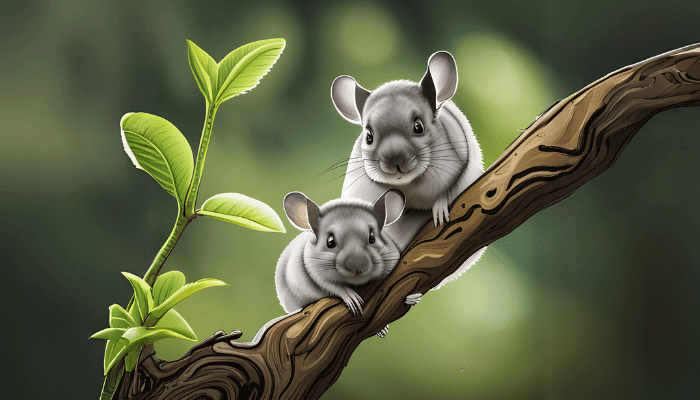
Baby chinchillas, commonly known as “kits,” are known for their irresistible cuteness and unique characteristics. Let’s explore what sets them apart.
Fur as Soft as a Cloud: Baby chinchillas have some of the softest fur in the animal kingdom. Their plush coat is a true testament to nature’s craftsmanship.
Big-Eyed Beauties: With large, expressive eyes, baby chinchillas have an innocent and captivating gaze that can melt anyone’s heart.
Superbly Playful: Kits are full of energy and always up for playtime, making them a delightful addition to any household.
Low-Maintenance Pets: Chinchillas are relatively low-maintenance pets, making them an ideal choice for both beginners and experienced pet owners.
Caring for Baby Chinchillas

If you’re considering bringing a baby chinchilla into your life, it’s essential to understand their unique care requirements. Here’s what you need to know:
Housing: Baby chinchillas require a spacious cage with shelves, ramps, and plenty of opportunities for exercise. Make sure the cage has horizontal bars to prevent their tiny legs from getting stuck.
Diet: A proper diet is essential for the health of baby chinchillas. They need a diet rich in hay, high-quality chinchilla pellets, and fresh water. Avoid treats high in sugar, as this can lead to digestive problems.
Socialization: Chinchillas are social animals, and baby chinchillas are no exception. They thrive when they have companions of the same age or older. Make sure to provide them with plenty of social interaction.
Regular Playtime: Chinchillas are energetic and love to play. Allow them to explore and exercise outside their cage for at least 30 minutes each day.
Grooming: Chinchillas are known for their thick, velvety fur. Regular dust baths are crucial for maintaining their coat’s cleanliness and health.
Chew Toys are a Must: To prevent their teeth from overgrowing, provide safe chew toys made of wood or lava blocks.
Healthcare: Regular check-ups with a veterinarian experienced in chinchilla care are vital. Baby chinchillas can be vulnerable to various health issues, so early detection is essential.
Hygiene is Key: Maintain a clean cage and provide a dust bath at least a few times a week. This will help keep their fur healthy and prevent skin issues.
Baby Chinchilla – A Balanced Diet for Optimal Growth
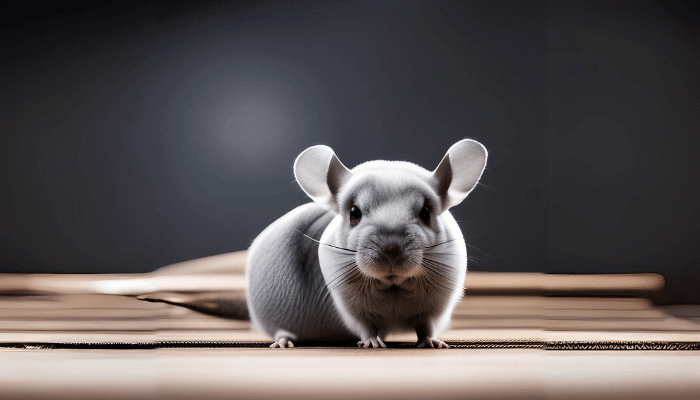
Proper nutrition is crucial for the health and growth of your baby chinchilla.
A Diet Rich in Hay: A diet consisting of high-quality hay, such as timothy or alfalfa, is essential for chinchillas. Hay provides essential fiber for digestion.
Fresh Water, Always: Provide fresh, clean water daily. Chinchillas can become dehydrated quickly.
Pellets in Moderation: High-fibre pellets designed for chinchillas can be part of their diet, but keep it limited to prevent obesity.
Say No to Treats: Avoid sugary treats as chinchillas are prone to diabetes. Stick to healthy snacks like dried apple or rose hips.
Baby Chinchilla Fun Facts
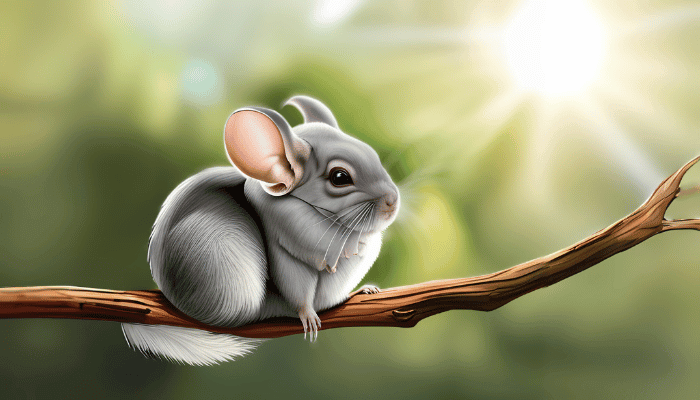
Baby chinchillas are more than just cute; they have some fascinating characteristics and quirks:
Dust Bath Fanatics: Chinchillas are known for their love of dust baths. They roll in special chinchilla dust to keep their fur clean and prevent matting.
Jumping Experts: Baby chinchillas have impressive jumping ability. They can leap up to six feet in a single bound, which helps them navigate rocky terrain in their natural habitat.
Unique Fur Colorations: Chinchillas come in various colours, from standard grey to beige, black, white, and more. Some rare mutations can lead to unique fur colourations.
Nocturnal Lifestyle: Chinchillas are crepuscular, meaning they are most active during dawn and dusk. Baby chinchillas tend to be particularly active during these hours, making them fun to watch.
Constantly Growing Teeth: Like their adult counterparts, chinchillas have teeth that never stop growing. Chewing on hay and wooden toys helps keep their teeth in check.
Baby Chinchilla Care – What to Expect
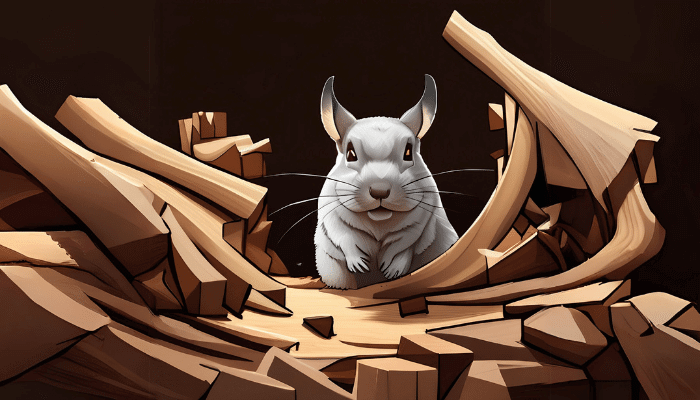
Raising a chinchilla requires careful attention and love.
Handling Your Kit: Handle your chinchilla gently and frequently to build trust. But remember, they’re delicate, so be cautious.
Social Creatures: Chinchillas are social animals, so consider getting a pair to keep each other company.
Veterinary Care: Regular check-ups are crucial to monitor their health. Find a veterinarian experienced with chinchillas.
Baby Chinchilla: A Precious Companion
Owning a baby chinchilla can be a delightful experience. Their playful and endearing nature can bring joy and laughter into your life. However, remember that chinchillas need dedicated care, and their long lifespan requires a long-term commitment.
Conclusion
In the world of pets, baby chinchillas are exceptional companions. Their cuteness, unique behaviors, and charming personalities make them stand out. Whether you’re a first-time pet owner or an experienced enthusiast, chinchillas have the power to steal your heart and become lifelong friends. With the right care and attention, these tiny furballs can bring endless joy to your life.
So, if you’re looking for a furry friend that’s both entertaining and adorable, consider bringing a baby chinchilla into your home. Just remember that they need a loving owner like you to ensure they live a happy and healthy life. Cherish the precious moments with your baby chinchilla and create memories that will last a lifetime.
Baby Chinchilla FAQs

Here are some common questions about baby chinchillas, along with concise answers to ensure you’re well-informed:
How long do baby chinchillas stay babies?
Baby chinchillas are considered infants until they reach about 6 months of age. After this period, they are considered juveniles and continue to grow until they are fully mature at around 1 year of age.
How big do baby chinchillas grow?
Baby chinchillas grow rapidly during their first few months. They can double in size within the first six weeks of life and typically reach their full size by six to eight months.
What do baby chinchillas eat?
Baby chinchillas primarily eat a diet of hay and chinchilla pellets. Their diet should be high in fiber and low in fat, and they should always have access to fresh, clean water.
How do baby chinchillas communicate?
Chinchillas, including babies, communicate through a range of vocalizations, body language, and scent marking. They can make sounds like barking, purring, and chirping.
Are baby chinchillas good pets for children?
While chinchillas are incredibly cute, they require careful handling and a lot of care. They may not be the best pets for very young children, as they can be easily injured if not handled gently.
Do baby chinchillas need dust baths?
Yes, baby chinchillas, just like adult chinchillas, need dust baths for grooming. Chinchillas have dense fur that can trap moisture, and dust baths help them maintain healthy fur and skin.
How can I tell the gender of a baby chinchilla?
Determining the gender of a baby chinchilla can be challenging until they are a bit older. Male chinchillas typically have a rounder, wider, and more prominent genital area than females.
What’s the lifespan of a baby chinchilla?
Baby chinchillas can live up to 20 years with proper care, making them a long-term commitment for any prospective chinchilla owner.
Do baby chinchillas need a specific temperature in their environment?
Chinchillas are sensitive to high temperatures, so it’s crucial to keep their environment cool, ideally between 60 to 70 degrees Fahrenheit (15 to 24 degrees Celsius).
